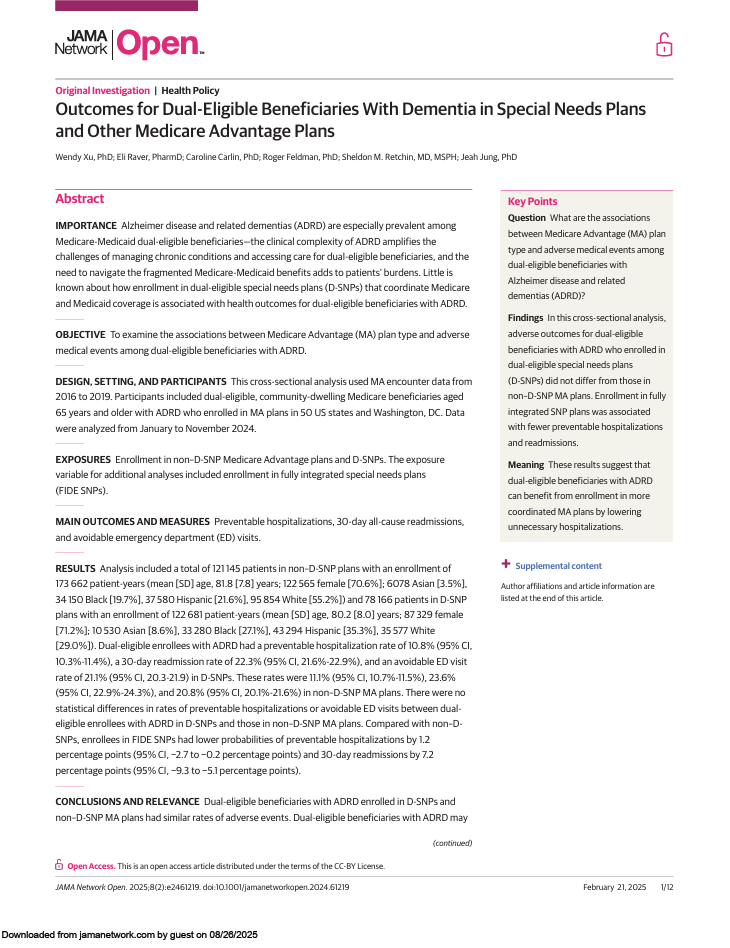Headline
Medicare Advantage plans with a higher level of integration between Medicare and Medicaid coverage are associated with improved outcomes for dually eligible individuals with dementia.
Background
Medicare Advantage dual eligible special needs plans (D-SNPs) are designed to provide better coordination of Medicare and Medicaid benefits for individuals who are dually eligible for Medicare and Medicaid, and these plans may be especially valuable for individuals with dementia who have a high degree of clinical complexity and need to access medical care and functional supports. This study examined how adverse health events for dually eligible individuals with dementia varied based on type of Medicare Advantage plan — either D-SNP, fully integrated dual eligible (FIDE) SNP, or a non-integrated Medicare Advantage plan.
Findings
Enrollment in a D-SNP was associated with a small reduction in 30-day readmissions as compared to non-integrated Medicare Advantage plans, but no difference in preventable hospitalizations or avoidable emergency department visits. However, enrollment in a FIDE-SNP was associated with fewer preventable hospitalizations and readmissions.
Policy/Program Takeaways
Models of care that offer a higher level of integration for dually eligible individuals, such as FIDE-SNPs, show evidence of improved outcomes for people with dementia.



